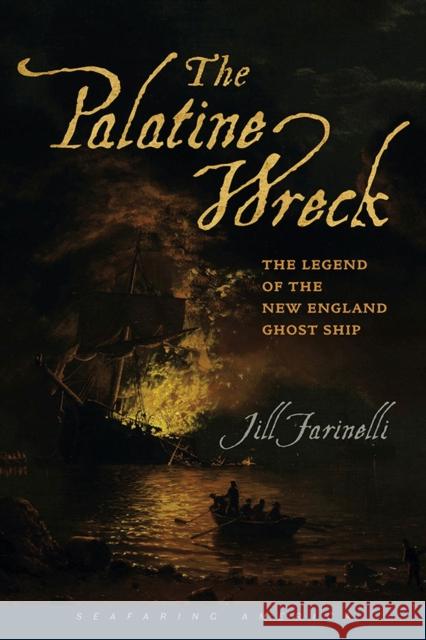The Palatine Wreck: The Legend of the New England Ghost Ship » książka
topmenu
The Palatine Wreck: The Legend of the New England Ghost Ship
ISBN-13: 9781611687057 / Angielski / Miękka / 2017 / 232 str.
Two days after Christmas in 1738, a British merchant ship traveling from Rotterdam to Philadelphia grounded in a blizzard on the northern tip of Block Island, twelve miles off the Rhode Island coast. The ship carried emigrants from the Palatinate and its neighboring territories in what is now southwest Germany. The 105 passengers and crew on board--sick, frozen, and starving--were all that remained of the 340 men, women, and children who had left their homeland the previous spring. They now found themselves castaways, on the verge of death, and at the mercy of a community of strangers whose language they did not speak.
Shortly after the wreck, rumors began to circulate that the passengers had been mistreated by the ship's crew and by some of the islanders. The stories persisted, transforming over time as stories do and, in less than a hundred years, two terrifying versions of the event had emerged. In one account, the crew murdered the captain, extorted money from the passengers by prolonging the voyage and withholding food, then abandoned ship. In the other, the islanders lured the ship ashore with a false signal light, then murdered and robbed all on board. Some claimed the ship was set ablaze to hide evidence of these crimes, their stories fueled by reports of a fiery ghost ship first seen drifting in Block Island Sound on the one-year anniversary of the wreck. These tales became known as the legend of the Palatine, the name given to the ship in later years, when its original name had been long forgotten. The flaming apparition was nicknamed the Palatine Light. The eerie phenomenon has been witnessed by hundreds of people over the centuries, and numerous scientific theories have been offered as to its origin. Its continued reappearances, along with the attention of some of nineteenth-century America's most notable writers--among them Richard Henry Dana Sr., John Greenleaf Whittier, Edward Everett Hale, and Thomas Wentworth Higginson--has helped keep the legend alive. This despite evidence that the vessel, whose actual name was the Princess Augusta, was never abandoned, lured ashore, or destroyed by fire. So how did the rumors begin? What really happened to the Princess Augusta and the passengers she carried on her final, fatal voyage? Through years of painstaking research, Jill Farinelli reconstructs the origins of one of New England's most chilling maritime mysteries.










